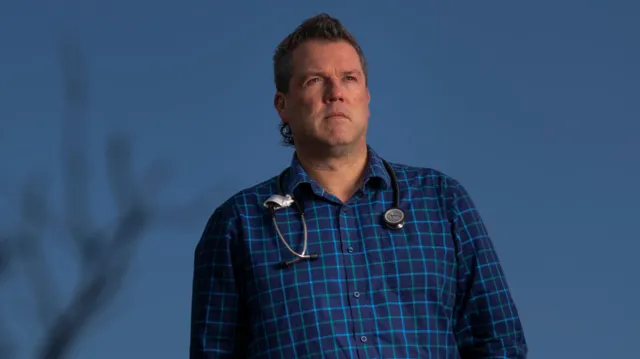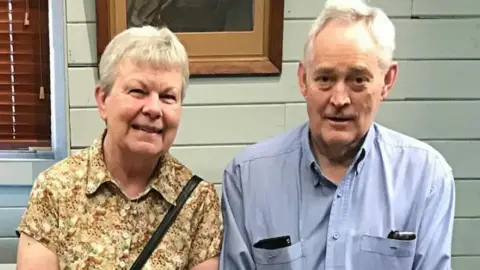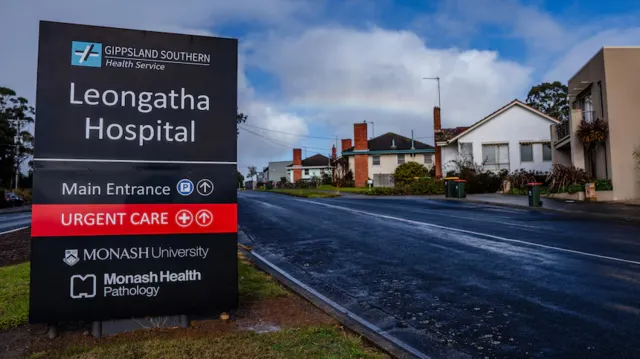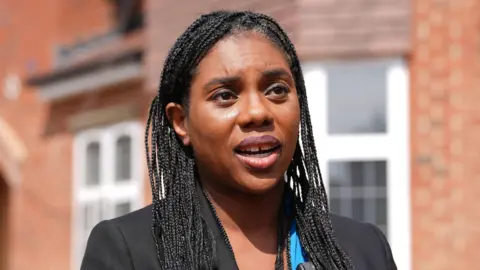‘You Did It’: Doctor Recounts Realizing Mushroom Cook Was a Killer
‘You Did It’: Doctor Recounts Realizing Mushroom Cook Was a Killer
In a harrowing account of a case that has gripped Australia, Dr. Chris Webster, a rural Victorian GP, has revealed the chilling moment he realized the woman he was treating, Erin Patterson, was a “cold-blooded killer.” Patterson was recently convicted of murdering her former in-laws, Don and Gail Patterson, and Gail’s sister, Heather Wilkinson, by intentionally feeding them toxic mushrooms during a family lunch in July 2023. The sole survivor of the poisoning, Heather’s husband Ian Wilkinson, required a liver transplant and spent weeks in an induced coma.
Dr. Webster, who runs Leongatha Hospital, was on the front lines of the unfolding tragedy. Initially, when Heather and Ian Wilkinson presented with severe gastrointestinal symptoms, he and his team suspected a case of mass food poisoning. “I thought, ‘Okay, yep, you did it, you heinous individual. You’ve poisoned them all’,” Dr. Webster recounted his immediate, visceral reaction upon Patterson’s arrival at the hospital.

The situation escalated rapidly. While treating the Wilkinsons, Dr. Webster received a call from a doctor at Dandenong Hospital, where Don and Gail Patterson were being treated. The grim news was delivered: it wasn’t just food poisoning; it was mushroom poisoning, and his patients were rapidly deteriorating. This realization prompted Dr. Webster to immediately change the course of treatment, focusing on liver support and preparing the Wilkinsons for transfer to a larger hospital with specialized care.
A pivotal moment in Dr. Webster’s realization of Patterson’s guilt came when she arrived at Leongatha Hospital, claiming she believed she had gastroenteritis. When questioned about the source of the deadly mushrooms, Patterson provided a single, suspicious answer: “Woolworths.” Dr. Webster found this highly improbable, noting that admitting to foraging wild mushrooms, a common practice in the area, would have been a more plausible explanation and less likely to raise immediate suspicion. The lack of any apparent distress or concern from Patterson regarding the critical condition of her relatives further solidified his suspicions.

The doctor’s suspicions were confirmed when he heard of the extreme toxicity of the mushrooms involved, later identified as Death Caps. He attempted to contact Patterson to bring her children in for medical evaluation, as they too had consumed the tainted meal. Patterson’s delayed and seemingly indifferent response, coupled with her eventual self-discharge from the hospital against medical advice, further fueled Dr. Webster’s concern, leading him to contact the police.
During the trial, Patterson claimed she had gone home to care for her animals and pack a bag after being informed of the potential poisoning. However, her explanation was met with skepticism, particularly her defiance when questioned about prioritizing mundane tasks over seeking immediate medical attention for herself and her children. “After being told by medical staff you had potentially ingested a life-threatening poison, isn’t it the last thing you’d do?” the prosecutor had asked. Patterson’s response, “It might be the last thing you’d do, but it was something I did,” highlighted her controversial testimony.

The guilty verdicts delivered by the jury brought a profound sense of relief to Dr. Webster. He described Patterson as “the definition of evil” and expressed that securing justice for the victims provided a significant emotional release. “It does feel like [there’s] that reward of justice,” he stated. The experience was emotionally taxing, with Dr. Webster admitting to shaking upon hearing the verdict, a testament to the immense pressure and responsibility he felt as a key witness.
The emotional toll of the case was evident when Dr. Webster spoke of the memory of sending Heather Wilkinson away in an ambulance. However, seeing Ian Wilkinson, the sole survivor, standing and recovered at the trial offered a sense of closure. “That memory of Heather being sort of taken away in that fashion, that’s now bookended by seeing Ian standing on his feet again,” he shared, finding comfort in this final image of resilience and recovery.
The trial also heard about the critical moments when Dr. Webster contacted the police, providing Patterson’s details and expressing his grave concerns. His professional judgment and quick actions played a crucial role in the subsequent investigation that led to Patterson’s conviction.
The case serves as a stark reminder of the devastating impact of toxic mushrooms and the complex psychological dynamics that can unfold in such tragic circumstances. Dr. Webster’s firsthand account offers a critical insight into the medical and emotional challenges faced by healthcare professionals when confronted with inexplicable and heinous acts.



Post Comment